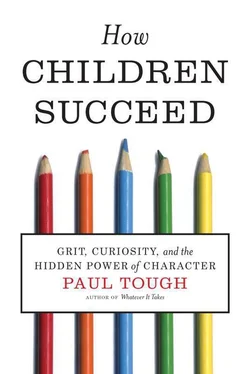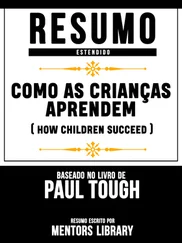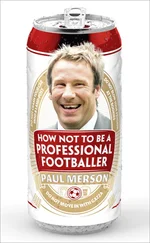Though academic personality psychologists, with the lonely exception of Roberts, mostly stayed away until recently, Big Five conscientiousness was embraced in the 1990s by a less illustrious psychological specialty: industrial/organizational psychology, or I/O psychology. Researchers in that field rarely hold positions with prestigious universities; most of them work as consultants for human-resource managers in large corporations that have a very specific need, far removed from esoteric academic debates: they want to hire the most productive, reliable, and diligent workers they can find. When I/O psychology began using various personality assessments to help corporations identify those workers, they found consistently that Big Five conscientiousness was the trait that best predicted workplace success.
What intrigues Roberts most about conscientiousness is that it predicts so many outcomes that go far beyond the workplace. People high in conscientiousness get better grades in high school and college; they commit fewer crimes; and they stay married longer. They live longer—and not just because they smoke and drink less. They have fewer strokes, lower blood pressure, and a lower incidence of Alzheimer’s disease. “It would actually be nice if there were some negative things that went along with conscientiousness,” Roberts told me. “But at this point it’s emerging as one of the primary dimensions of successful functioning across the lifespan. It really goes cradle to grave in terms of how well people do.”
9. The Downside of Self-Control
Of course, that doesn’t mean that everyone agrees that conscientiousness is an entirely positive thing. In fact, some of the first empirical evidence for the connections between conscientiousness and success in school and the workplace came from people who didn’t think much of either school or the workplace. In their 1976 book Schooling in Capitalist America, the Marxist economists Samuel Bowles and Herbert Gintis argued that American public schools had been set up to perpetuate social-class divisions. In order for capitalists to keep proletarians in their class of origin, they wrote, “the educational system must try to teach people to be properly subordinate.” Bowles and Gintis drew on contemporary research by Gene Smith, a psychologist who had found that the test that most reliably predicted a high-school student’s future didn’t measure IQ; it measured how a student’s peers rated him on a trait Smith called “strength of character,” which included being “conscientious, responsible, insistently orderly, not prone to daydreaming, determined, persevering.” This measure was three times more successful in predicting college performance than any combination of cognitive ratings, including SAT scores and class rank. Intrigued by Smith’s results, Bowles and Gintis and a colleague undertook a new research project, subjecting all 237 students in the senior class of a big high school in New York state to a variety of IQ and personality tests. They found, as expected, that cognitive scores were quite predictive of GPA, but an index they derived from a combination of sixteen personality measures, including conscientiousness, had an equivalent predictive power.
To psychologists like Seligman and Peterson and Duckworth and Roberts, these results are a resounding demonstration of the importance of character to school success. To Bowles and Gintis, they were evidence that the school system was rigged to create a docile proletariat. Teachers rewarded repressed drones, according to Bowles and Gintis; they found that the students with the highest GPAs were the ones who scored the lowest on measures of creativity and independence, and the highest on measures of punctuality, delay of gratification, predictability, and dependability. Bowles and Gintis then consulted similar scales for office workers, and they found that supervisors judged their workforce the way teachers judged their students. They gave low ratings to employees with high levels of creativity and independence and high ratings to those workers with high levels of tact, punctuality, dependability, and delay of gratification. To Bowles and Gintis, these findings confirmed their thesis: Corporate America’s rulers wanted to staff their offices with bland and reliable sheep, so they created a school system that selected for those traits.
According to Roberts’s research, people who score high on conscientiousness tend to share certain characteristics: they are orderly, hard-working, reliable, and respectful of social norms. But perhaps the most important ingredient of conscientiousness is self-control. And when it comes to self-control, Marxist economists are not the only people who are skeptical of its value.
In Character Strengths and Virtues, Peterson and Seligman contended that “there is no true disadvantage of having too much self-control”; it is a capacity, like strength or beauty or intelligence, with no inherent downside—the more you have, the better. But an opposing school of thought, led by the late Jack Block, a psychological researcher at the University of California at Berkeley, argued that too much self-control could be just as big a problem as too little. Overcontrolled people are “excessively constrained,” Block and two colleagues wrote in one paper. They “have difficulty making decisions [and] may unnecessarily delay gratification or deny themselves pleasure.” According to these researchers, conscientious people are classic squares: they’re compulsive, anxious, and repressed.
Block’s findings are certainly valid; it’s easy to see how conscientiousness can descend into compulsiveness. But at the same time, it is hard to argue with the data showing correlations between self-control and positive outcomes. In 2011, that pool of evidence grew further when a team of researchers published the results of a three-decade-long study of more than a thousand young people in New Zealand that showed, in new detail, clear connections between childhood self-control and adult outcomes. When their subjects were between the ages of three and eleven, the researchers, led by the psychologists Avshalom Caspi and Terrie Moffitt and including Brent Roberts, used a variety of tests and questionnaires to measure the children’s self-control and then combined those results into a single self-control rating for each child. When they surveyed the subjects at age thirty-two, they found that the childhood self-control measure had predicted a wide array of outcomes. The lower a subject’s self-control in childhood, the more likely he or she was at thirty-two to smoke, to have health problems, to have a bad credit rating, and to have been in trouble with the law. In some cases, the effect sizes were huge: Adults with the lowest self-control scores in childhood were three times more likely to have been convicted of a crime than those who scored highest as kids. They were three times more likely to have multiple addictions, and they were more than twice as likely to be raising their children in a single-parent household.
But even Angela Duckworth agrees that self-control has its limitations. It may be very useful for predicting who will graduate from high school, but, she says, it’s not as relevant when it comes to identifying who might invent a new technology or direct an award-winning movie. And after publishing her groundbreaking self-control-versus-IQ study in Psychological Science in 2005, Duckworth began to sense that self-control wasn’t precisely the driver of success that she was looking for. She considered her own career. She was, by objective measures, very intelligent, and she recognized that she had high levels of self-discipline: she got up early; she worked hard; she met deadlines; she made it to the gym on a regular basis. And though she was certainly successful—very few doctoral students have their first-year theses published in a prestigious journal like Psychological Science —her peripatetic early career was much less directed than that of, say, David Levin, who had found his life’s calling at twenty-two and had persisted at the same goal ever since, overcoming many obstacles and creating, with Michael Feinberg, a successful network of charter schools educating thousands of students. Duckworth felt that Levin, who was about her age, possessed some trait that she did not: a passionate commitment to a single mission and an unswerving dedication to achieve that mission. She decided she needed to name this quality, and she chose the word grit.
Читать дальше



![Коринн МакКей - How to Succeed as a Freelance Translator [calibre 3.46.0]](/books/402693/korinn-makkej-how-to-succeed-as-a-freelance-transl-thumb.webp)








